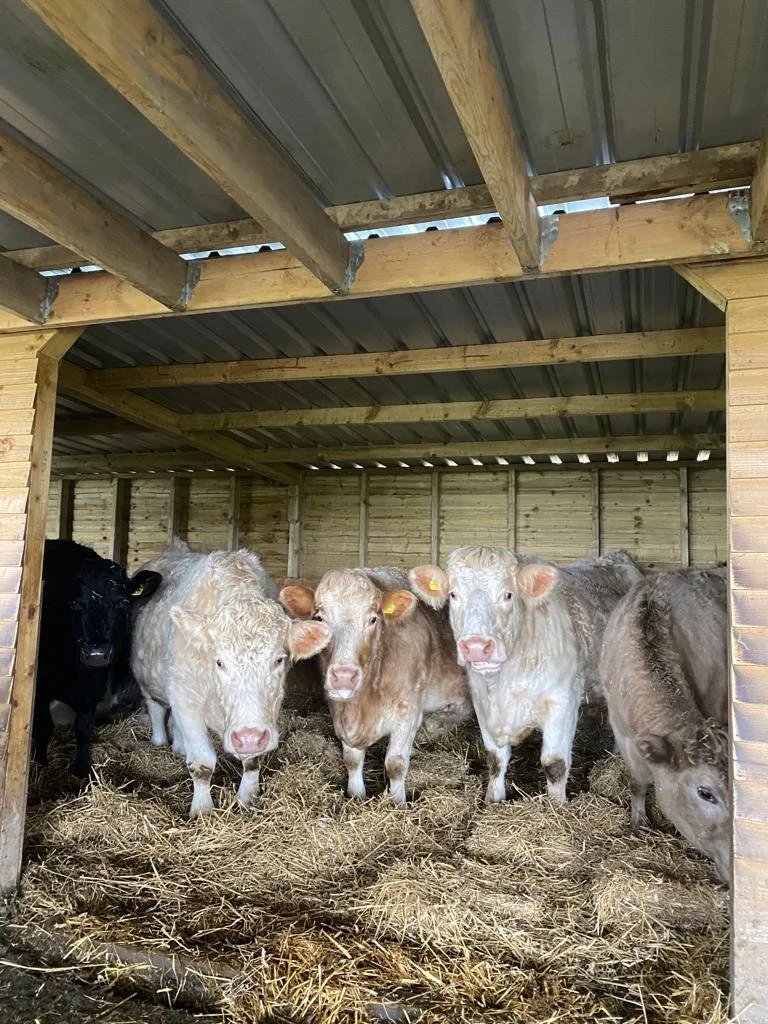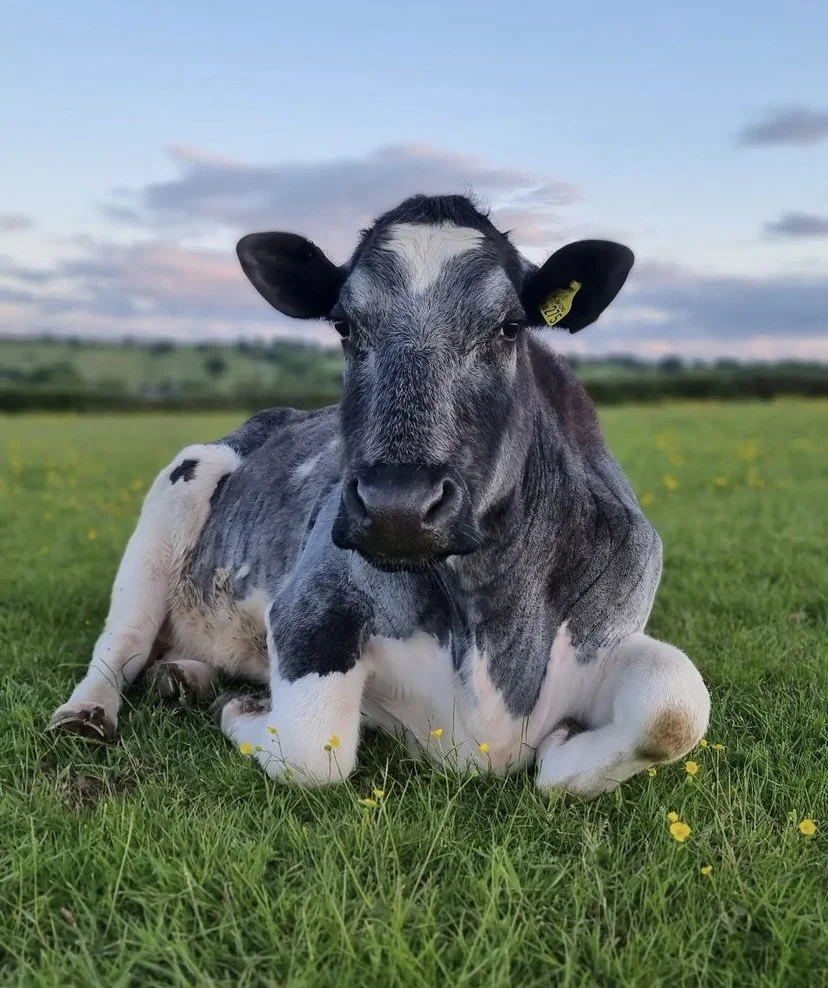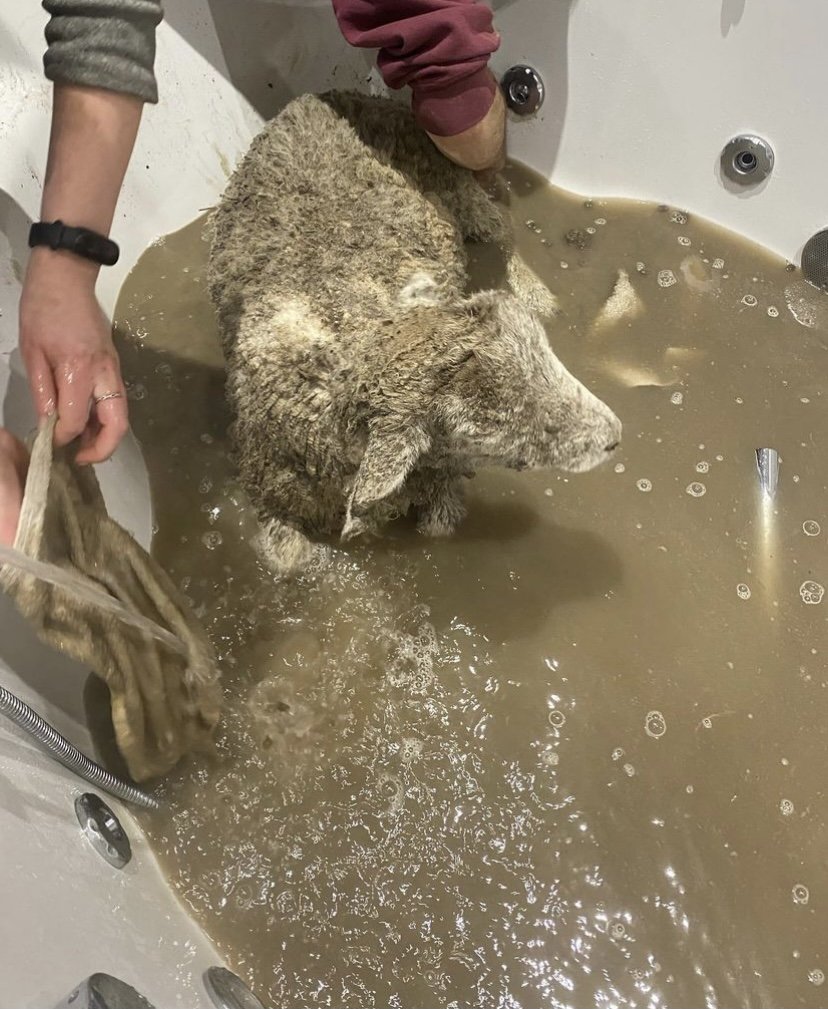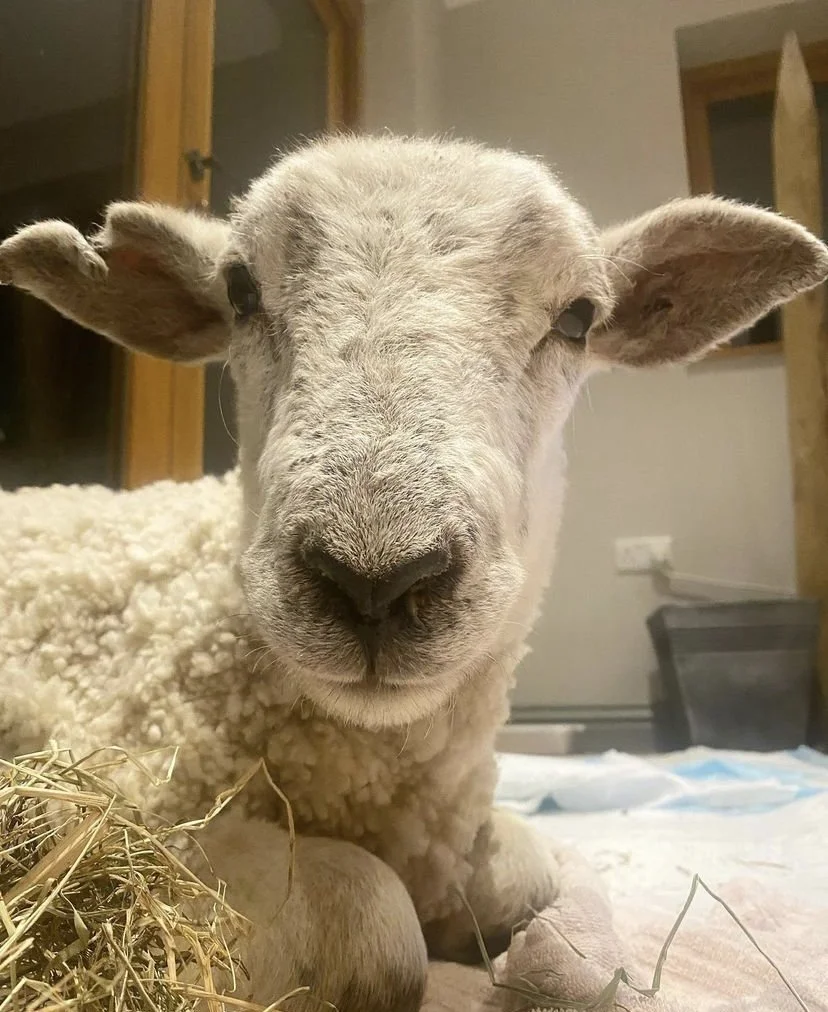Changing seasons
Cow clan sheltering in the barn.
The seasons are changing at Surge Sanctuary, and we need some help to keep our ground under control!
Love it or hate it, winter is on the way, which means our work at the sanctuary is about to double while the time to do it halves.
Our most senior resident Holly, who is an impressive 19 years old!
As days draw darker and the wind bites harder, all of our grazing animals will come in from the fields to the barns and stables for the duration of the winter. We do this to let the ground recover in time for spring, and because it is more comfortable and safe for our residents, some of whom are elderly!
Our birds have already come inside due to an outbreak of avian flu - which will be expanded upon in the next blog.
Any time animals come inside, it is more labour intensive. For example, when they can’t eat the grass, our cows, goats, pigs, and sheep eat hay - and lots of it - so that means we need to fill nets and troughs for over 40 animals per day.
Then there’s the mucking out - which becomes a full time job. Everybody (over 100 residents) need their living areas cleaned out thoroughly multiple times per day to keep things comfortable and sanitary, and new bedding has to be laid.
This is what trying to transport hay without mud control looks like!
On top of this, as the ground turns to mud, physically transporting food and water to the residents and travelling to and from muck heaps with heavy wheelbarrows is a serious challenge. In fact, this would be impossible without mud control slabs, which are large durable slabs placed on top of mud to create a stable pathway. The slabs are absolutely invaluable to the smooth running of the sanctuary in winter, and even in summer.
Click here to see just some of the ways we use them, including as barn flooring, pathways to get around the yard, and as mini roads for the tractors to transport large bales of hay and fresh bedding.
We are currently part of a fundraiser to receive mud slabs, but it only has one week left and we are just over half way to our target of 40 square metres! If you can, please consider donating a slab (or a few!) to us via this link. They cost £7.50 each but they are truly worth their weight in gold to us and the residents. Thank you so much!
Finally, we would like to share with you a story showing just how life saving mud control can be.
Our handsome sheep Jamie was found literally drowning in mud on the farm where he was being raised for his wool and flesh. There is no requirement to give sheep shelter on farms, and they often spend the entire winter in increasingly muddy and dangerous fields, with nobody watching over them. The cost of installing mud control may be more than what the farmer can make from a sheep, and as a consequence, they are left to die.
But Jamie’s life should not have a price tag - he is invaluable, as is all sentient life.
This is how Jamie was found.
From our volunteer Chanel:
‘Little Jamie was left in a field to die. When he was found he was literally stuck to the ground because of the amount of mud in his wool and was being trampled by the other sheep.
Some of the wool we cut from Jamie.
When he came to us he was freezing, soaking wet, absolutely covered in mud and basically unresponsive - we honestly didn't think that he was going to make it. We covered him in towels and heat packs to try and warm him up, we cut away at his mud soaked wool and syringed him water.
As he warmed up, he started to come round a bit and we were able to help him up onto his feet - those first few steps he took had us all in tears! We encouraged him to eat, and then gave him a bath to get the rest of the mud and dirt off that we couldn't cut away.
Jamie getting his first ever warm bath.
The transformation in just a few hours was incredible!
He still had a number of medical issues that needed treatment, but we managed to get him well enough to endure those treatments. We were amazed at how he was so trusting towards us from the start and it seems that he knew we were trying to help him.
He still has issues that are a result of his past, for example, he will likely develop arthritis early on due to his joints being weak and compromised, but we will ensure that he always has the care and help he needs to live his best life!
The next few days after he had been found were very cold with ice and snow, and if he hadn't been rescued when he was, he would have definitely died a slow, awful death. We are so grateful that we got to give this little guy another chance at life.’
We love you Jamie!









